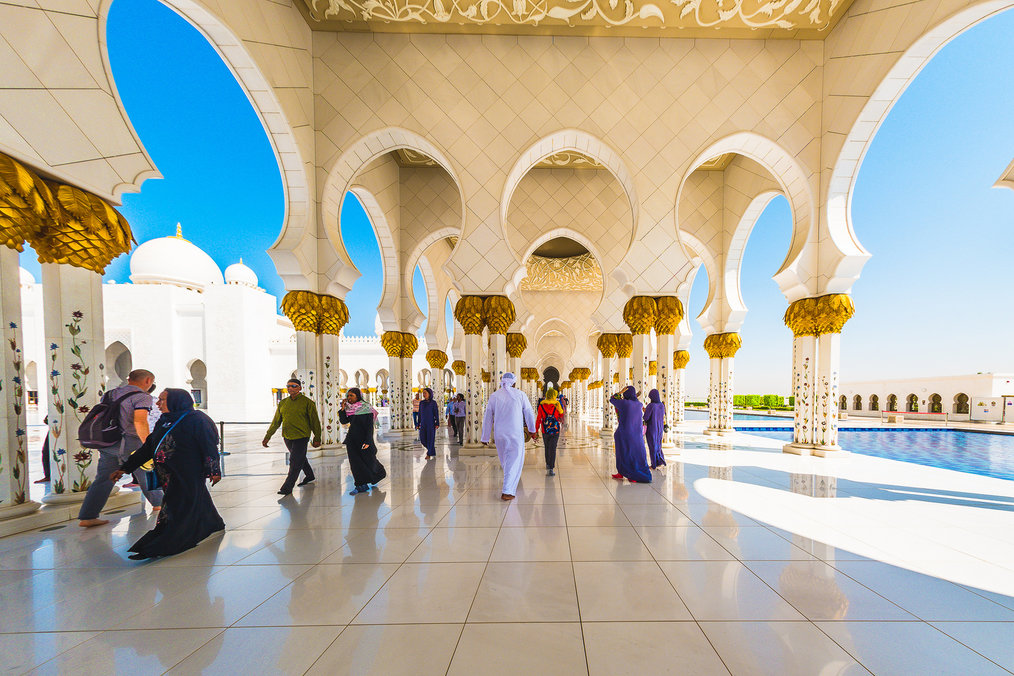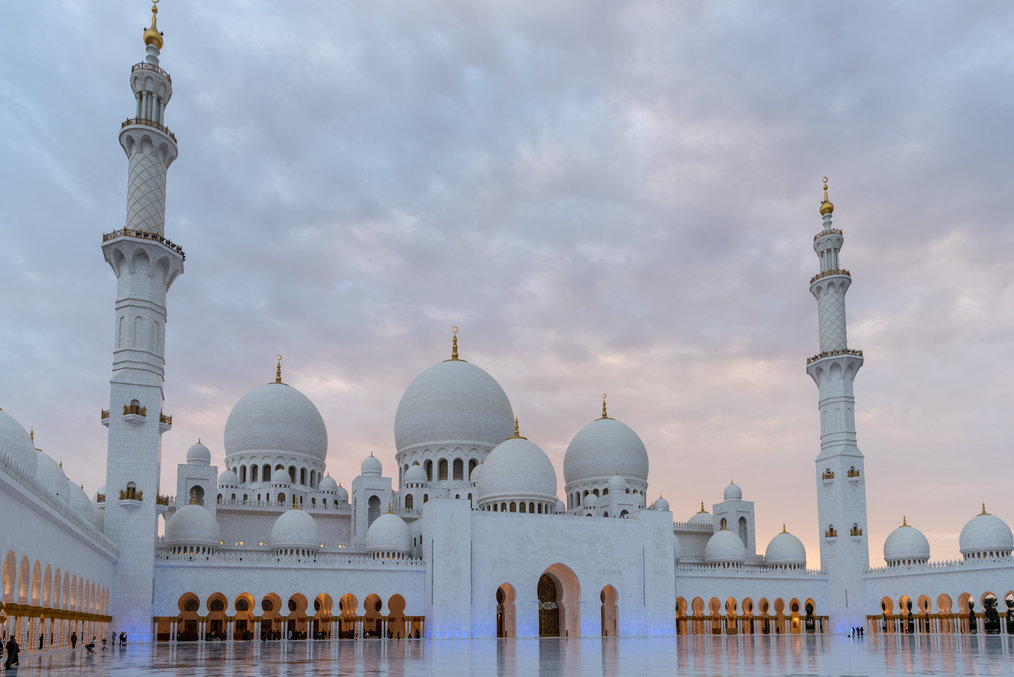What You Need to Know Before Studying Abroad in the UAE
To help you navigate the polarising contrasts between conservatism and glamour, here’s what you should know before you study abroad in the UAE.

Few prospective study abroad students think that the UAE could potentially become their new home. After all, popular media portrays cities like Dubai and Abu Dhabi as being little more than expensive places to live, chock-full of glass, concrete, and skyscrapers. But interestingly, the UAE, thanks to its vibrant multicultural environment, is very different from elsewhere in the Middle East.
On one hand, you’ll see Islamic traditions and customs and the heritage of the region and on the other, you’ll see an open-minded, innovative, and forward-looking cities and citizens thirsty for global recognition in the fields of art, culture, science, technology, and commerce. To help you navigate these contrasts here’s what you should know before you study abroad in the UAE.
The UAE is Safe & Secure
The UAE is one of the safest countries in the Middle East and don’t be surprised if you end up feeling like it’s safer than your own hometown. In the cities, petty crimes such as tourist scams, pickpocketing, or bag slashing are extremely rare and almost never heard of. Dubai and Abu Dhabi are the kind of cities where if you forget your wallet, bag, or purse in a café or taxi, there’s a high chance you’ll have it returned to you. (Note: this doesn't mean you should test this theory!)
There is a good amount of security during festivals, concerts, and outdoor events, and crowds are usually organized. Getting around Dubai at all hours of the day and night is safe, even for women taking taxis after the hours of operation of public transportation such as metro or buses. Women are highly respected in the local culture; crimes against women attract serious punishments by the law.
Fashion is Welcome in the UAE

It doesn’t take long to realize that Dubai is a fashionable city; its residents look well groomed even when shopping at the neighborhood supermarket, watching a movie at the cinema, or returning home from work on the metro. Unlike other cities in the Middle East, Dubai and Abu Dhabi are home to many expats and are multicultural, so you’ll see people dressed in a variety of styles; everything from Indian and Pakistani women in salwar kameez and Emiratis and other Arab nationals in local dress to high-street looks that seem like they’re straight off the runways of international fashion weeks.
While in Dubai, it’s okay to express your individual style and wear pretty much anything (jeans, dresses, skirts, trousers, and shorts), it helps to be aware of the rules around modesty, both spoken and unspoken. To get a sense of this, spend your first week dressed modestly and observe how long-time residents dress in different parts of the city. For example, beachwear (even bikinis) and very short shorts are acceptable on public beaches, but nowhere else, you’d have to cover up with a t-shirt and shorts or dress even to dine at cafés across from the beach.
In Abu Dhabi and the rest of the Emirates, we recommend dressing more modestly so as not to offend local culture, especially when visiting museums, mosques, malls, and government offices. In shopping malls and other public places, women need to cover their shoulders and wear clothes that at least reach the knee. Modest attire is also recommended during Ramadan, the holy month of fasting for Muslims worldwide.
Dress codes are more liberal in expat and tourist-heavy areas such as Dubai Marina and in international hotels that are home to bars, nightclubs, and beach clubs. Many dining and nightlife venues have dress codes, so check in advance.
Multicultural Forces are Embraced in the UAE
Tolerance is one of the key principles of society in the UAE, firmly ingrained into its cultural identity and this shouldn’t be surprising at all; after all, the country has played host to cultures from South and Central Asia, Africa, and the rest of the Middle East from its earliest days as an important port on the trading routes of the region.
Everyone has the freedom to practice their religion (in a peaceful manner) and there are places of worship from different faiths around the country such as mosques, temples, and churches. Festivals from around the world such as Diwali, Christmas, St. Patrick’s Day, and the Chinese New Year are celebrated with much fervor by communities in Dubai and often, other expats and locals join in on the fun.
As a study abroad student living in the UAE, it wouldn’t be unusual for you to be invited to an Iftar dinner during Ramadan, a Holi party in spring, an Eid celebration, an Oktoberfest event, and a Christmas dinner over the course of a year. Not only will you have the chance to make local friends, but you’ll also meet with study abroad students and expats from all around the world.
There are a Few Cultural Faux Pas to Avoid

Thanks to the UAE’s modern outlook and the presence of expats, people who move to the country often miss the unspoken everyday rules of social interaction and cultural nuances they would perhaps otherwise be paying attention to in an Islamic country, especially when it comes to interacting with the locals.
When meeting locals of the opposite sex, it’s best to greet them and wait for them to reach out for a handshake, should they be so inclined. Do not reach out to hug or kiss someone unless you’re a close friend and of the same gender. If you’re invited to a local home or are attending a local cultural festival, both men and women should dress modestly.
It’s important to know that public displays of affection (with members of either sex) are a strict no-no, and can land you in serious trouble with the authorities, as can public drunkenness, brawling, and rude gesturing or loud swearing in public.
English is Widely Spoken
While I definitely recommend learning conversational Arabic as not only is the language beautiful, but doing so will make your time in the UAE much more interesting, you can also totally get by in English as it’s widely spoken around the country, even in government offices. You’ll find that street and shop signs, public transportation schedules and maps, and billboards around the cities are all in English, so you’ll have no trouble finding your way around. Indeed, many expats who have lived in the UAE for several years have sadly not learned even basic Arabic thanks to the convenience of English being spoken everywhere.
In Summer, Yes, It Gets Really Hot

Most residents have learnt how to cope with the ruthless daytime temperatures in summer, that can reach as high as 50°C, with a daily routine that involves spending most of their day indoors, especially between the hours of 12pm to 5pm. Not only is the heat in summer scorching, the humidity levels in the months of June, July, and August are the highest during the year. Not surprisingly, many expats visit their home countries during summer. If you plan on staying in the UAE during summer, remember that sunscreen is your best friend and to drink a lot of water to stay hydrated, wear light and breathable fabrics, wear a hat, scarf, or cap outdoors, and try to spend more time indoors during the day.
Winter is a Great Time to Be in the UAE
On the other hand, October to April is a fantastic time to be in the UAE. As the temperatures cool down, the cities really gets into their element with outdoor events, street festivals, food festivals, concerts, and pop-up markets. The days are still warm and sunny so you can go to the beach even in December, when your friends and family back home endure grey, dark winter days. This is also the perfect time to experience a desert safari, a must on every visitor’s to-do list, and to ride on magnificent desert dunes on quad-bike.
During these months, you’ll see residents take their fitness routines outdoors to the beach or neighborhood parks with beach or moonlit yoga sessions and running clubs training for marathons.
Getting Around On a Budget

One of the first things visitors notice about the cities is that they aren’t exactly the kind of cities where you’d walk or cycle everywhere, not only are there no pedestrian-only streets or bicycle lanes, the daytime temperatures in summer would make this impractical. Taxis can be expensive (though not as expensive as they are in some European cities), so your next best option is the metro in Dubai and public buses in the other emirates.
The Dubai metro system is affordable, reliable, has good connectivity, and helps you skip rush-hour traffic. It’s best to get a rechargeable Nol card when you first arrive, that can be used on the metro, public buses, tram, and water taxi, instead of queuing up to buy tickets for each journey.
Ramadan is the Holy Month of Fasting
During the month of Ramadan, fit and able Muslims around the world abstain from eating, drinking, smoking, and sex, and break the fast only around sunset, to cleanse the mind and body and show gratitude. Ramadan is followed by the grand celebration of Eid Al Fitr. If you're going to be studying abroad during Ramadan, it's still possible to have a great time.
In the UAE, office hours are reduced for both government and private offices and a majority of restaurants and cafés are open only for dinner. But there’s no reason to worry if you plan on eating out in Dubai or Abu Dhabi during Ramadan, there are quite a few cafés and restaurants, spread across the cities that are in fact open for non-fasting customers during lunch, a quick Google search for that particular year should tell you your options.
You’re prohibited to eat or drink in public places such as shopping malls or the metro station during the day, so if you have to chew gum or drink water, find a private space and be discreet about it. As this is a month of prayer and it is prohibited for bars and restaurants to play loud music, expect the cities’ nightlife to come to a halt during the month.
It’s common for friends, colleagues, and families to attend Iftar dinners where the fast is broken and a feast is enjoyed together with your loved ones and most restaurants have themed Iftar dinners each night.
You Can Enjoy Entertainment on a Budget

The UAE can be pretty expensive to live in and if you’re on a student’s budget, it helps to know about entertainment and events that are free to attend. Whether you’re a fitness enthusiast, love stand up comedy, jazz music, or are interested in world cinema, there are plenty of free sessions, shows, festivals, and movie screenings to attend hosted by community groups such as The Screen Club, Dubomedy, and others.
In the cooler months, there are events such as the Sikka Art Fair, Ripe Market, Dubai Marina Street Festival, and Truckers Dxb Food Truck Festival, among others, all of which are worth checking out. Look for events on Facebook to keep track of happenings around your city.
A study abroad experience in the UAE, a diverse melting pot of cultures, is unlike anywhere else in the world. It’s a chance to thrive, study, and engage in cultural exchanges in a truly global, fast-paced environment that is full of career opportunities for qualified candidates.
